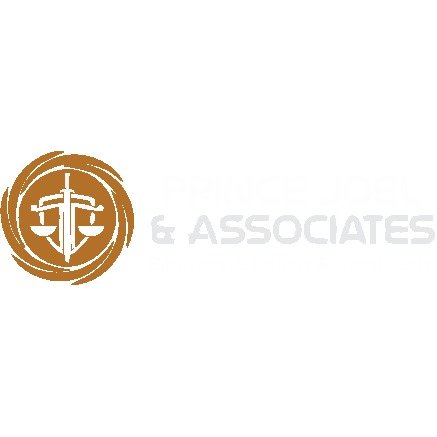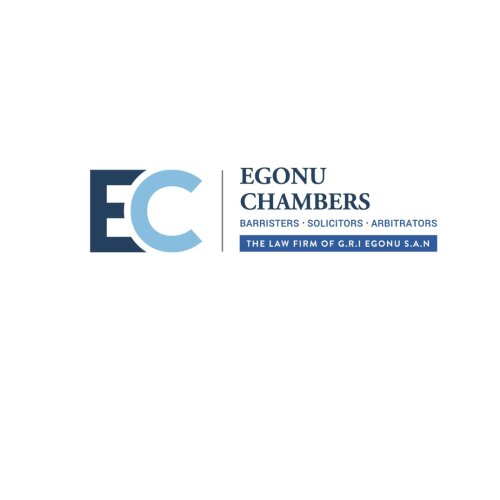Best Mining Law Lawyers in Onitsha
Share your needs with us, get contacted by law firms.
Free. Takes 2 min.
List of the best lawyers in Onitsha, Nigeria
About Mining Law in Onitsha, Nigeria
Mining Law in Onitsha, Nigeria governs the exploration, extraction, utilization, and management of solid minerals within the region. Onitsha, being a commercial hub in Anambra State, has witnessed increasing interest in mining activities due to mineral deposits in the surrounding environs. The legal aspects of mining in Onitsha are shaped primarily by Federal statutes, with enforcement and certain regulatory roles also played at the state and local government levels. Mining Law in Nigeria is primarily structured to regulate the acquisition of mining rights, ensure compliance with safety and environmental standards, and manage the relationship between stakeholders, including landowners, miners, government agencies, and host communities.
Why You May Need a Lawyer
Seeking legal assistance in Mining Law can be crucial in several scenarios. Mining activities are subject to intricate regulations that, if misunderstood or violated, can result in fines, license revocations, or criminal liability. You may need a lawyer for the following reasons:
- Acquiring exploration or mining licenses and ensuring compliance with licensing requirements
- Negotiating land use agreements with landowners or host communities
- Understanding environmental and safety compliance responsibilities
- Resolving disputes related to mining rights or boundaries
- Defending against regulatory enforcement actions by authorities
- Advising on the transfer, sale, or inheritance of mining rights
- Interpreting the impact of new or amended laws on ongoing operations
- Navigating taxation and royalty obligations associated with mineral extraction
Local Laws Overview
Mining in Onitsha and throughout Nigeria is principally governed by the Nigerian Minerals and Mining Act, 2007 and related regulations. Here are key legal aspects relevant to Mining Law in Onitsha:
- Licensing: All mining activities require the grant of appropriate titles, such as exploration licenses or mining leases, from the Federal Ministry of Mines and Steel Development.
- Land Ownership: Although the Federal Government owns mineral resources, land ownership issues might arise as the land is typically owned under customary law by individuals or communities in and around Onitsha.
- Community Relations: There are legal requirements to engage with and compensate host communities, involving the negotiation of Community Development Agreements.
- Environmental Regulation: Mining operators must comply with environmental protection standards, including securing Environmental Impact Assessment (EIA) approvals before commencing activities.
- Payment of Royalties and Fees: Holders of mining rights must pay prescribed royalties and annual service fees to the government.
- Local Content: Regulations encourage the hiring of local labor and sourcing of goods and services from within Nigeria.
- Dispute Resolution: Disputes can arise and may be settled through negotiation, arbitration, or court action, depending on the circumstances.
Frequently Asked Questions
What government agency regulates mining activities in Onitsha and Nigeria as a whole?
The Federal Ministry of Mines and Steel Development is the main regulatory body overseeing mining activities in Nigeria, including Onitsha. There are also state-level agencies that play supportive roles.
Can individuals or companies own minerals found on their land in Onitsha?
No. All mineral resources in Nigeria belong to the Federal Government, regardless of land ownership. However, landowners may be entitled to compensation for land usage or disturbance.
What licenses do I need to start mining in Onitsha?
You will need to apply for either an exploration license or a mining lease, depending on the stage and scale of your operations. Additional permits, such as environmental approvals, may also be necessary.
How do I resolve a dispute with a landowner or community about mining rights?
Such disputes can be resolved through negotiation, mediation, or, if needed, court action. Legal representation is recommended to help protect your interests and ensure due process.
What environmental responsibilities do mining operators have?
Operators are required to conduct Environmental Impact Assessments and implement mitigation measures to manage the impact of their activities. Non-compliance can result in severe penalties.
Are there special requirements for engaging with host communities?
Yes. Operators must negotiate and sign Community Development Agreements, provide compensation for land disturbance, and contribute to local development as specified by law.
What happens if I mine minerals without the necessary permits?
Engaging in mining without appropriate authorizations is illegal and can attract heavy fines, equipment seizure, and even imprisonment.
Can mining rights be transferred or sold?
Yes, mining rights can be transferred, assigned, or sold, but only with government approval and under certain conditions detailed by law.
Are there local content rules for mining operations in Onitsha?
Yes. The law encourages operators to use local labor and materials and to contribute to local economic development.
What taxes or royalties apply to mining operations?
Mining operators are required to pay government royalties based on the quantity and value of minerals produced, as well as other relevant taxes and annual service fees.
Additional Resources
If you wish to learn more about Mining Law or need support, the following entities and resources can assist:
- Federal Ministry of Mines and Steel Development
- Anambra State Ministry of Environment and Mineral Resources
- Onitsha South and North Local Government Authorities (for community and local permits)
- Nigerian Mining Cadastre Office (for title registrations and searches)
- Nigerian Bar Association (Anambra State Chapter) for assistance in finding qualified mining lawyers
- Community-Based Organizations and NGOs focusing on mining and environmental rights
Next Steps
If you need legal advice or representation regarding Mining Law in Onitsha, Nigeria, start by organizing all documents related to your intended or current mining activities. Clearly identify your key objectives and concerns. Contact a lawyer with experience in Mining Law and schedule a consultation to review your situation. You can also reach out to relevant governmental bodies or professional associations for referrals to reputable practitioners. Make sure to act promptly, especially when responding to regulatory notifications, disputes, or enforcement actions, as mining legal matters are often time sensitive.
Lawzana helps you find the best lawyers and law firms in Onitsha through a curated and pre-screened list of qualified legal professionals. Our platform offers rankings and detailed profiles of attorneys and law firms, allowing you to compare based on practice areas, including Mining Law, experience, and client feedback.
Each profile includes a description of the firm's areas of practice, client reviews, team members and partners, year of establishment, spoken languages, office locations, contact information, social media presence, and any published articles or resources. Most firms on our platform speak English and are experienced in both local and international legal matters.
Get a quote from top-rated law firms in Onitsha, Nigeria — quickly, securely, and without unnecessary hassle.
Disclaimer:
The information provided on this page is for general informational purposes only and does not constitute legal advice. While we strive to ensure the accuracy and relevance of the content, legal information may change over time, and interpretations of the law can vary. You should always consult with a qualified legal professional for advice specific to your situation.
We disclaim all liability for actions taken or not taken based on the content of this page. If you believe any information is incorrect or outdated, please contact us, and we will review and update it where appropriate.











